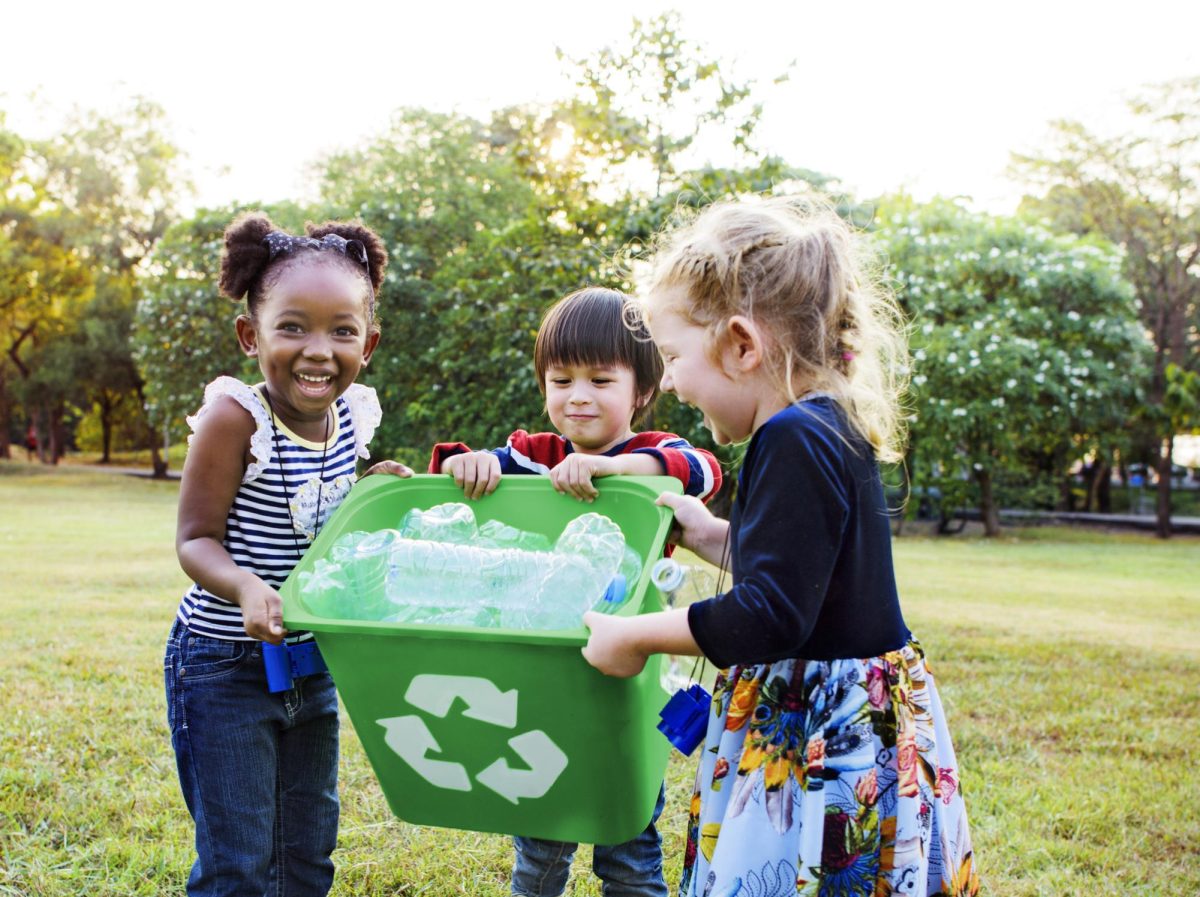Recycling first began during the 1960s when less than 7% of the United States participated. In ancient Japan, recycling was more common with paper and its products were seen as more precious than the original item. However, in the 1970s, recycling became more popularized when an increase in recycling programs formed globally. Since the 70’s, the United States faces an exponential decrease in the amount of recycling that the United States collects. As of now, around 35% of the United States recycles. This decline may be due to a lack of availability or education on the subject.
Recycling in the United States continues to decrease in its recycling rate. Recyclable materials are being wasted causing more corruption to nature.
The National Restaurant Association states that only around 60% of restaurants actively recycle their waste. With trash cans more readily available, many recyclable items become placed in contaminated cans. The materials cannot be separated to be recycled which causes the lack of recycling seen in the U.S. The steps taken to recycle include collecting the materials, processing the materials, and manufacturing them into a new item. These items must be clean because often, workers will discard all materials if there is trash present or simply just not clean. According to the National Oceanic and Atmospheric Administration, the earth’s temperature continues to increase significantly since 1880, as of now it’s increased up to 0.14 degrees Fahrenheit. Continuing to not recycle in the state of our environment that people live in today will cause much more harm in times to come.
Recycling affects more than just humans; it also widely affects the ecosystem. In 2019, the topic of recycling resurfaced on the internet as marine biologists noticed it presented a threat to our sea turtles and other marine life. Following the famous line, ‘Save the turtles,’ recycling became highly popularized as an act to spark change. After realizing about 80% of unrecycled plastic debris harms our ocean wildlife, people were urgent to find a solution. Metal straws became the simple solution to cutting down some of the plastic debris in the ocean. However, metal straws are not commonly available in public places, continuing the cycle that damages our marine wildlife. Although the metal straws produced a solution to the problem, an easier ethical option can be to enforce recycling bins in all public areas. This would help more people learn about the damages not recycling causes to the environment. Not everyone will recycle, but placing more recycling bins around will make it more accessible to those who are interested in helping the environment. Even the smallest amount of help can decrease the harm being caused to the world.
According to University Sustainability & Recovery Practices, less than 65% of schools have recycling programs that are enforced and less than 25% actually recycle the materials in school. With the lack of information on recycling in schools, younger generations do not have the opportunity to learn the importance of recycling or the correct materials to recycle. Any plastic, paper, and metal materials that are clean are meant to be properly recycled. The United States as a whole does not recycle enough as it is. Compactor Management Company finds that if more plastic continues to be recycled around 66% of energy would be saved. Conserving energy is important because it reduces the amount of polluted water and air pollution. Recycling is important to the planet because it helps conserve our natural resources. A lack of recycling can and will lead to increased deforestation which can also destroy animal habitats. As the decrease of recycling rises higher on America’s list of priorities, other states were determined to try to find a simple yet effective solution to its lack of recycling. The “Zero Waste Omnibus Amendment Act of 2020” was signed in response to this issue. It requires information about recycling to be visible and clear, or near the recycle bin. Washington D.C. was the first to announce the amendment in hopes of seeing change in society. The goal is to have no waste by 2032. The state Florida is just as determined to create change for the environment, setting the goal that 75% of the state’s waste will be recycled. Even popular tourist cities in the United States such as San Francisco, Boston, Washington D.C. and New York began to enforce the same requirements and some additions. States that help provide information and other resources to promote recycling help create a clean, safe environment for all species.
Another reason recycling continues to reduce over time is that some individuals do not see it as helpful to the planet, which is not true. Sometimes not all of the recycled materials can be reused. Often, items can become contaminated and need to be disposed of. If the wrong items are placed in the recycle bin they are automatically tainted and must be disposed of. Contaminated items are bound to be improperly disposed of sometimes, however, taking the chance to continue to recycle no matter the outcome is always the best option. Any materials that are not tainted can immediately help reduce the amount of environmental destruction needed. If recycling does not get better in the years to come future generations will slowly start to suffer with the damage that the population created. An article from the Environment Center found that thousands of acres of land started to close. With those thousands of acres lost the earth is losing its natural resources. Change does not always need to be great to make an effect, even the smallest amount can set the world up for success.









